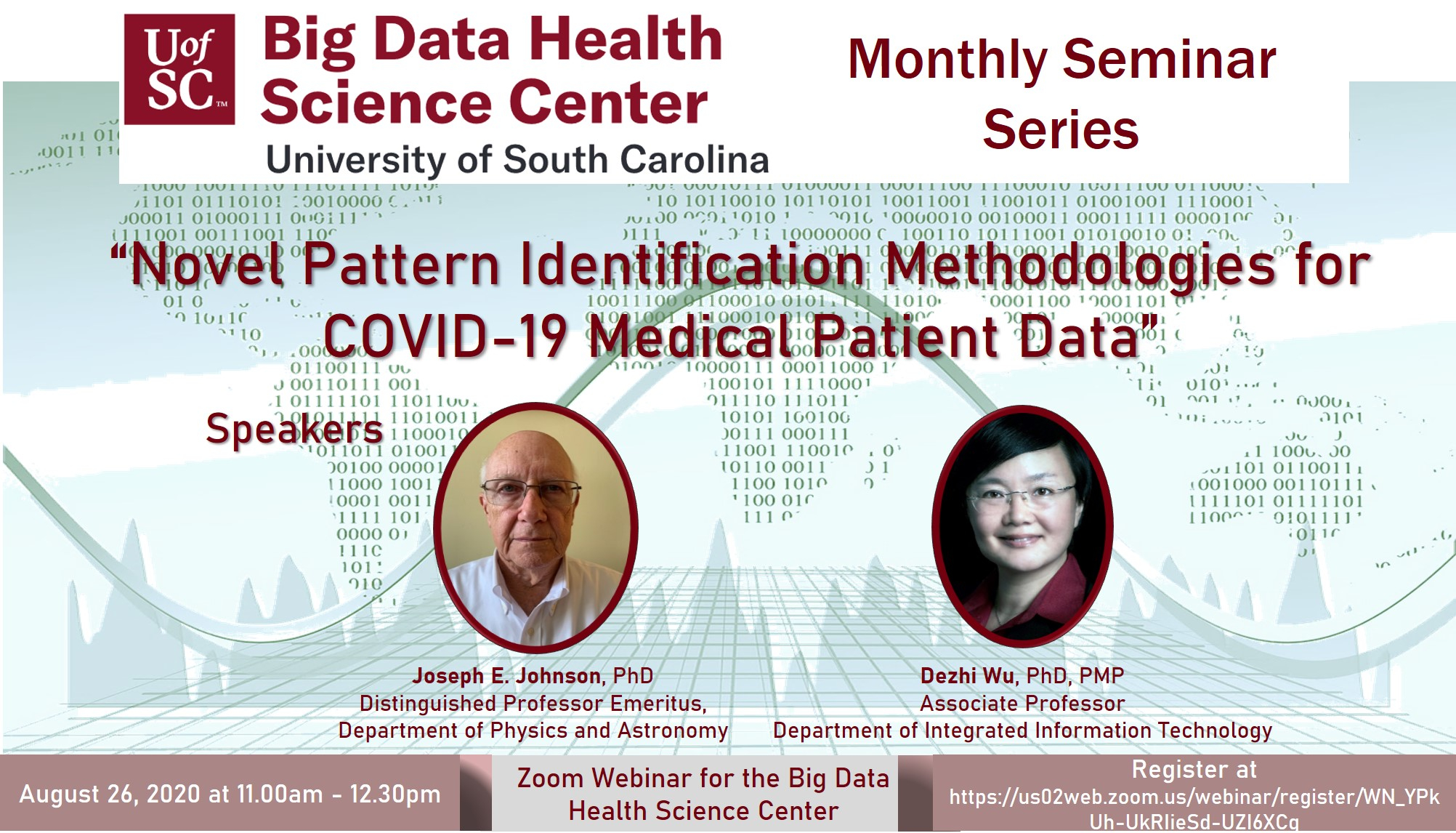This event took place on August 26, 2020 and was part of the BDHSC Monthly Seminar Series
Abstract:
Novel pattern identification methodologies have been developed based upon mathematical methods used in theoretical physics. The resulting powerful algorithms can be utilized to find clusters in both numerical data tables of the attributes of things and of networks of connectivity among things. This research develops a transformative pattern identification algorithm to analyze COVID-19 patient data for cluster analysis in tabular numerical data tables, e.g., patient medical data files and in disease networks. A cloud-based clustering system is being designed and deployed to host multi-users’ large medical data submissions along with extensive user documentation and user tools for submission and resulting analysis. The initial prototype will be launched and tested in the fall of 2020 with extensive PRISMA COVID-19 personal medical encounter data seeking comorbidity and other regularities and patterns in the data.
About Speakers:
Dr. Joseph E. Johnson’s primary research interests are the applications of Lie algebras, groups, and Markov transformations to information theory with novel cluster and information spectral pattern identification in Big Data and networks and to relativistic quantum theory. He has been PI for over $12M in USC grants and was the past Associate Dean for Research in the College of Science and Mathematics.
Dr. Dezhi Wu is an associate professor at the Department of Integrated Information Technology. Her research interests are human-computer interaction, health IT, artificial intelligence, big data analytics, and Cybersecurity. Her research focuses on designing and creating novel user interfaces and applications for transformative user experiences to bridge the gaps between users and today’s evolving smart technologies. She was the recipient of the global technology award “AIS Technology Challenge Award,” and she is the former Chair for AIS Special Interest Group on Human-Computer Interaction (SIGHCI).

